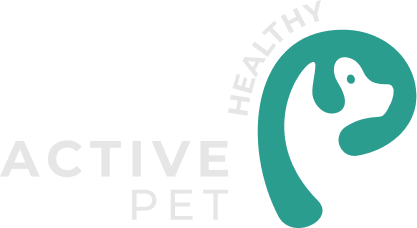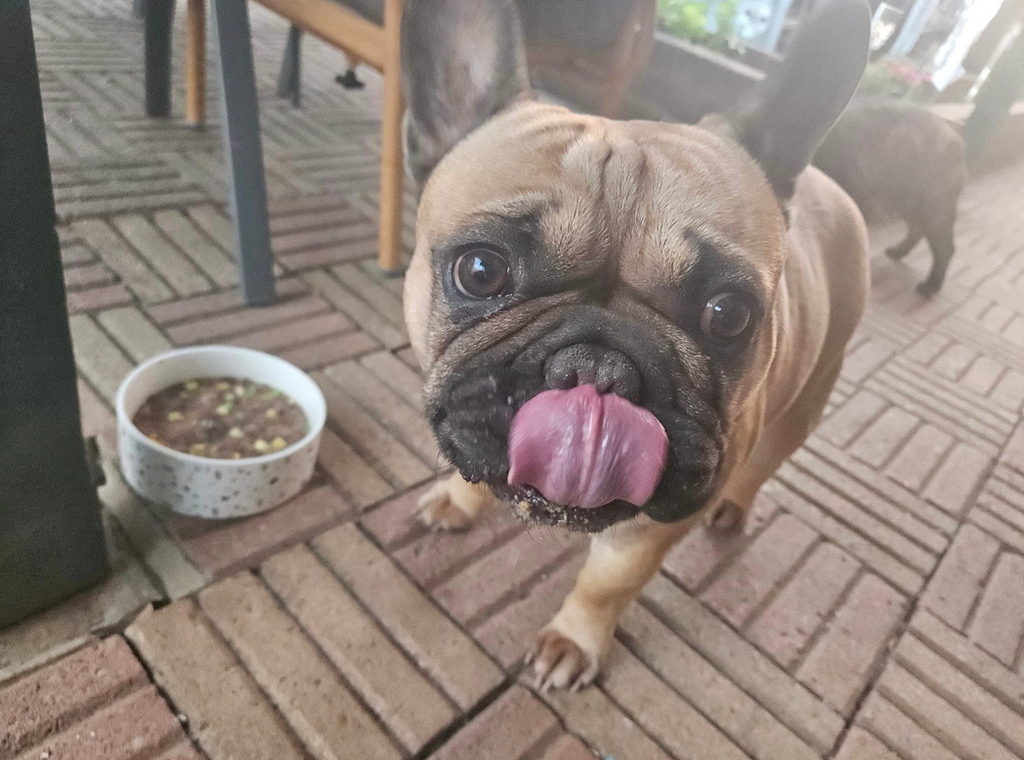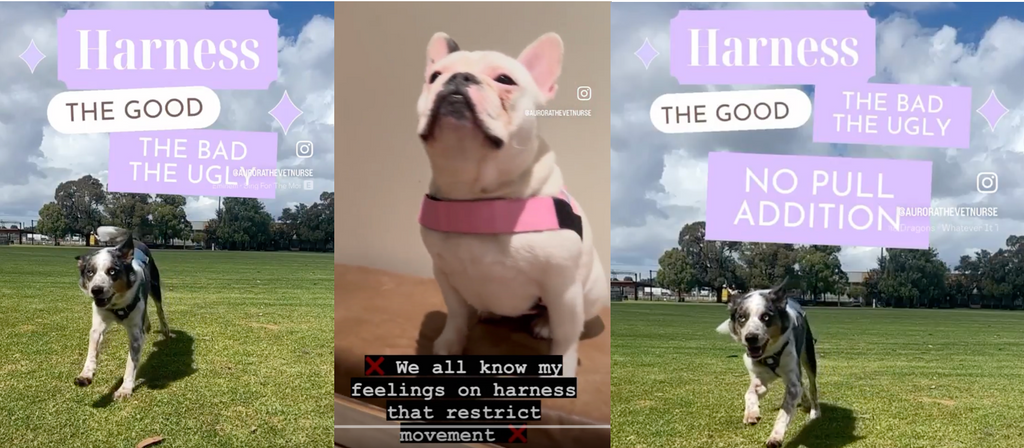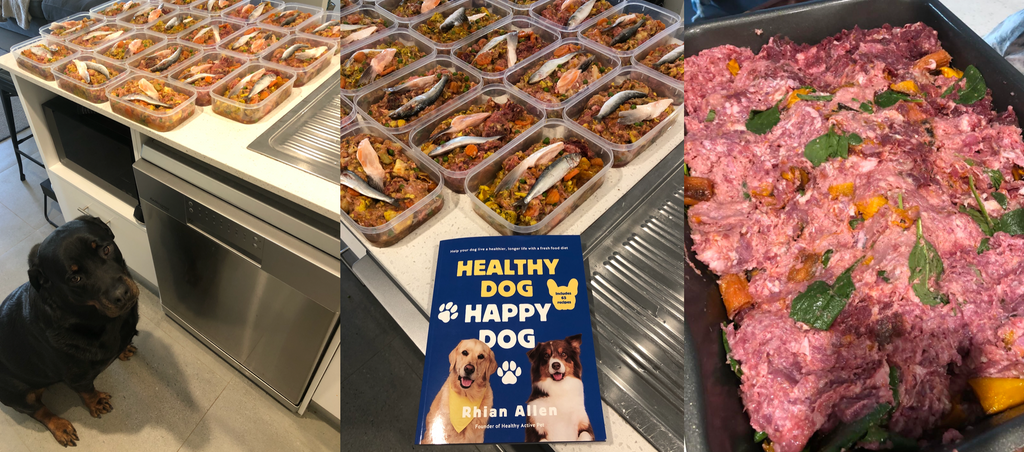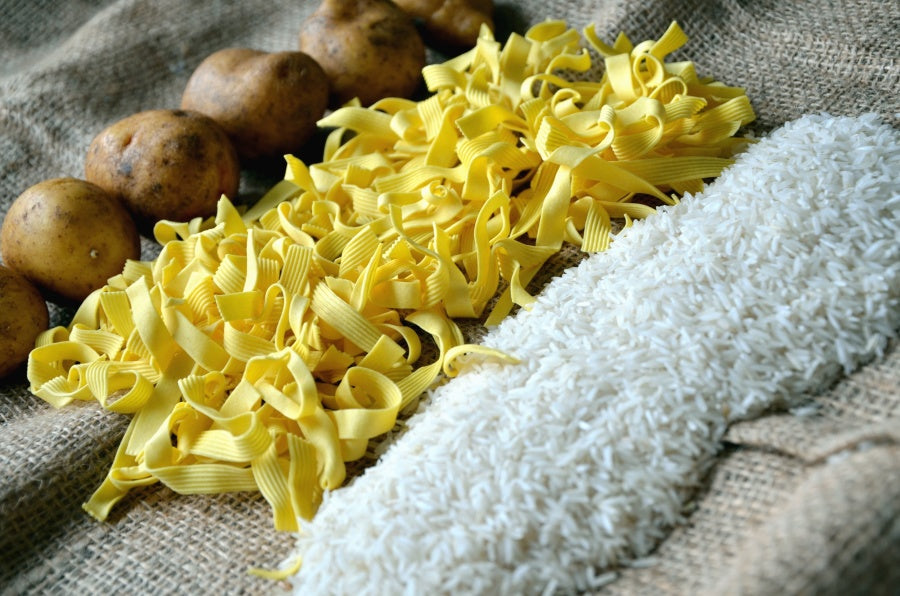
Should your dog have potato, pasta and rice?
As fresh foods for dogs become increasingly popular, it seems more and more new options spring up on the market every week.
This is great news for people looking to add variety to their pooch’s diet, but it does bring with it new challenges, like navigating this sea of different foods, with all of their different flavours, ingredients and sometimes bold claims.

Even if you choose to prepare your dog’s food at home like we do at Healthy Active Pet with our meal plans and recipes, reading labels and researching what’s on offer can leave your head spinning!
One thing people often find confusing is the central role of carbohydrate rich ingredients in dog food.
These were once the realm of kibbles and biscuits (which have a lot of carbs in amongst other things!), but now we are seeing more and more fresh food varieties coming out that are loaded with potatoes, rice and pasta (we won't name them but there are a lot out there where carbs are heavily featured)

So what’s the deal? Does my dog need to eat potatoes, rice and pasta?
Your dog does not need to eat any one food, and we always encourage a wide variety of nutritious whole foods be offered to make up a robust, balanced diet.
Can this occasionally include potatoes, rice or even pasta? Sure. There are some benefits to feeding cooked white potatoes, the main one being resistant starch, which is an indigestible form of fibre that feeds the good gut bacteria in the digestive tract, keeping them alive and supporting gut symbiosis.
Occasionally including a small amount of potatoes in the rotation of plant matter you feed your dog in this way is totally appropriate.
Pasta and rice are not things we would explicitly recommend you routinely include in your dog’s diet, but a bit of leftover penne probably isn’t going to do any harm and if you find your dog is especially lean, these foods can be a good way to bulk out their food temporarily and help them keep weight on.
But should these foods for the basis of the diet?
Absolutely not. This can be confusing when you visit the pet store and are confronted with big shiny displays of the latest “vet recommended” food that is brimming with these simple carbs as the first or second ingredient and, even more puzzling, sometimes advertised as digestive or weight loss varieties. You can read about this here
While most of us easily digest (and love) carbohydrate rich foods, this can pose a significant challenge for dogs, who are at the very least on the carnivorous end of the omnivore scale or, according to many, actual carnivores like their wolf ancestors and their domestic pal, the humble house cat.

These animals thrive on a diet where their energy and nutrients come primarily from protein and fat rich foods.
The main reason we don’t recommend foods like pasta, rice and potatoes forming the basis of the diet is simply that they’re not rich in the nutrients dogs need to thrive.
These ingredients are inexpensive for manufacturers to include in large amounts but provide short bursts of energy and really, not much else of note (except problems!).
Worse still, these foods contain compounds such as phytates, lectins and protease inhibitors, which can bind to essential minerals (eg. zinc and iron) and prevent the body from absorbing them, negatively impact the permeability of the gut lining and prevent nutrients from absorbing effectively, and interfere with the ability of digestive enzymes from breaking down and absorbing proteins.
Typically foods that feature large amounts of rice, pasta and potatoes will also include synthetic vitamins and inorganic mineral supplementation to replace the essential nutrients lacking in these ingredients, which is a good way to cut corners and ensure your food bears the coveted “complete and balanced” label, despite its shortcomings.
Simple carbs can also contribute to allergy type symptoms, either through their impact on the gut or because some dogs are actually allergic to gluten or wheat.
They are a common culprit for digestive issues, such as bloating, diarrhea and gas, and they can greatly exacerbate or even cause yeast imbalances – which often present as rashes, reddening of the skin and fur, weepy eyes and itchy fur, paws and ears.
Like the refined flours in processed dog food, large amount of carbohydrate rich foods in fresh dog food can also cause insulin spikes and ultimately lead to weight gain, and with it the whole myriad of problems cascading from the epidemic of obesity in our pets that we’re seeing today.
So while the odd leftover spud is unlikely to cause your dog any major issues, we don’t recommend making these carbohydrate rich foods the basis of their diet.
If you want to combine meal prep, we suggest you keep some mince aside next time you make spaghetti bolognaise, not pasta – and in fact our weight management program for dogs has a dog-friendly spaghetti and meatballs recipe you can try!
And we have over 30 recipes in our home made dog recipe book here too

You can also see our air dried complete dog food here which is free from all potatoes, rice and pasta and is jammed with human grade turkey and sardines and is loved by dogs!

